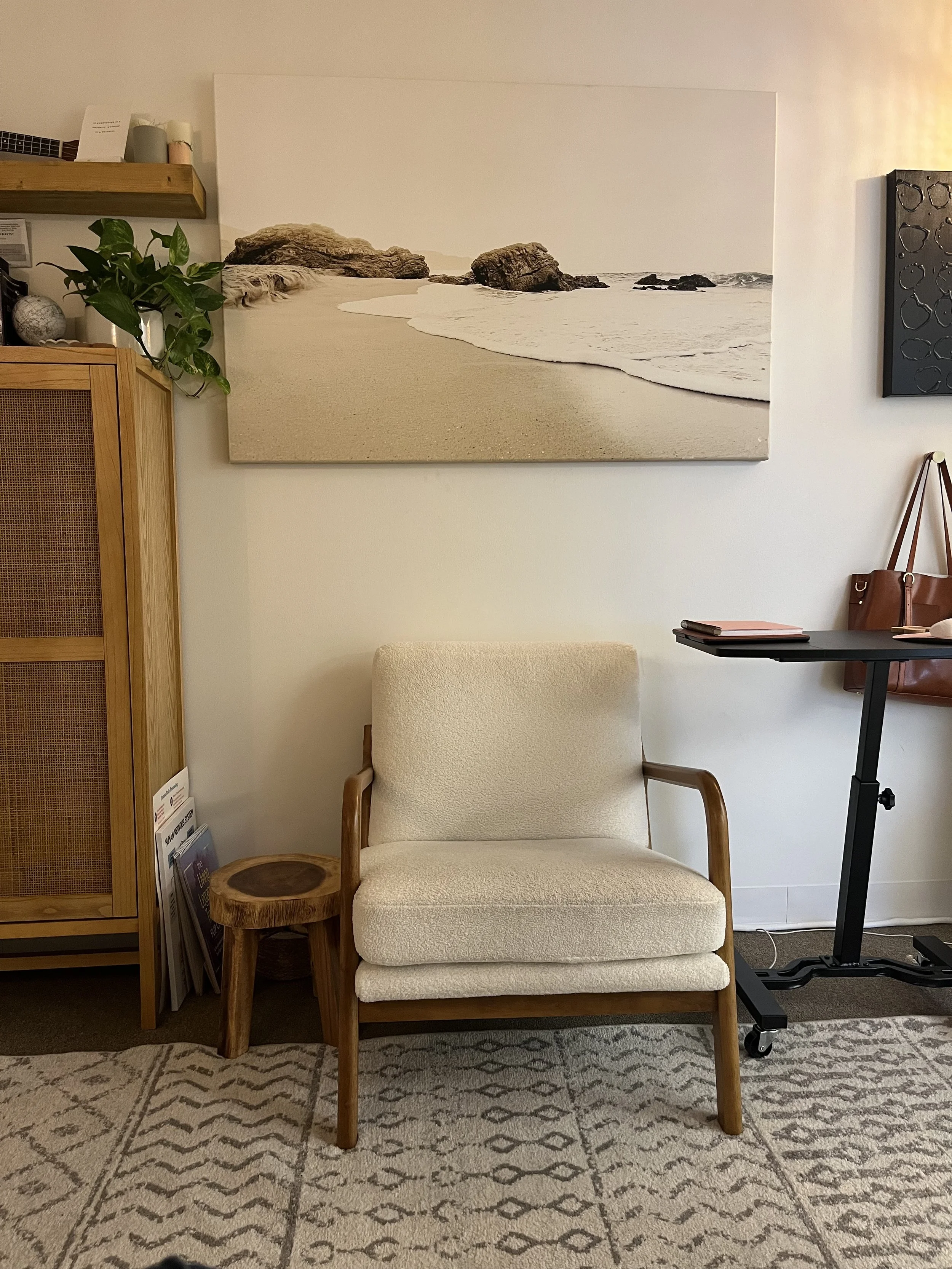Integrated :: Connected :: Directed
Ryan Denney, M.A., AMFT #155800
Registered Associate Marriage and Family Therapist
Supervised by Rachel Daggett, MS, LMFT #107858
Before becoming a therapist, I spent over 20 years in the software industry—starting as a Java programmer and eventually founding Consensus Consulting Group. My work took me around the world, partnering with Fortune 500 companies to help integrate complex systems into their day-to-day operations. But what I was always most drawn to was the human element: how people communicate, how teams function, and how we rebuild connection when things break down.
Now, I bring that same systems lens into the therapy room—working with individuals, couples, families, and groups to help them better understand their internal worlds and relational dynamics. I believe integration is at the heart of healing—integrating the Me (our inner parts), the We (our relationships), and the The (our connection to something bigger). Therapy is where those stories can begin to align.
My clinical approach is grounded in Internal Family Systems (IFS), existential therapy, interpersonal neurobiology, and humanistic/client-centered care. Clients often tell me they feel deeply heard in our work. I aim to bring empathy, critical thinking, and a calm presence to each session, especially for those navigating complex or painful transitions.
I hold a Bachelor’s in Computer Science, a Master’s in Christian Spiritual Formation, and a Master’s in Marriage and Family Therapy. I’m currently pursuing my Doctorate in Marriage and Family Therapy and see clients under clinical supervision as an Associate Marriage and Family Therapist.
Outside of therapy, I’ve been married to my wife Jennie for 21 years, and together we’re raising four kids in sunny Southern California. That lived experience continues to shape my passion for relational work and my commitment to helping families grow stronger, one conversation at a time.
Are you ready to take the next step with me? Schedule a free 15-minute consultation with me to see if I’m the right fit therapist for you.
Working With Clients who…
-

Business Professionals
Ryan draws on his global experience as an integration architect to help executives — from C-Suite leaders to professionals managing teams — navigate the pressures of leadership, workplace dynamics, and the balance between career and personal life. He supports leaders in building team cohesion, strengthening communication, and creating healthier rhythms at work and at home.
-

Workplace Team Building, Communication & Connection
With years of experience working alongside companies around the world, Ryan understands how breakdowns in communication and collaboration can impact organizational culture. He helps teams build trust, improve communication, and foster stronger connections so groups can function with clarity and cohesion. His work supports leaders, staff, and cross-functional teams in creating environments where people feel valued and able to thrive together.
-

Whole Family Systems & Relational Dynamics
Ryan also works with families to strengthen the relationships that form the foundation of daily life. He helps parents, partners, and children understand one another more fully, repair relational ruptures, and create healthier patterns of interaction. His approach draws from systems thinking — recognizing that changes in one relationship ripple across the whole family — and creates a supportive space for families to build trust and connection.
-

Individuals
Ryan works with individuals across all ages and stages of life, offering support for personal growth, transitions, and challenges. Whether it’s navigating stress, identity shifts, or relational struggles, he provides a space for reflection and resilience. His goal is to help clients gain clarity, discover new perspectives, and build the tools needed to move forward with confidence.
Ryan’s Approach
Ryan’s therapeutic work is grounded in the belief that healing happens across three interconnected layers: the me (your relationship with yourself), the we (your relationships with others), and the thee (your connection to something greater—meaning, purpose, or spirituality).
Each of the approaches Ryan uses—IFS, Existential Therapy, Interpersonal Neurobiology, and Humanistic therapy—offers a unique doorway into understanding and strengthening these parts of your story. Whether you’re feeling stuck, disconnected, or searching for clarity, his integrative approach is designed to help you reconnect with your inner sense of self, show up more authentically in your relationships, and navigate life’s deeper questions with curiosity and courage.
Internal Family Systems (IFS)
-
IFS helps you explore the different “parts” of yourself—like the inner critic, the avoider, or the overachiever. It assumes all parts have good intentions, even if their actions cause pain.
-
IFS gives people a way to connect with themselves without shame. Instead of fighting your patterns, you learn to listen to them and lead with your core Self.
-
IFS can help you build compassion toward yourself, increase emotional clarity, and shift stuck internal patterns.
-
No Bad Parts by Dr. Richard Schwartz
Humanistic (Client-Centered) Therapy
-
A therapy approach based on the belief that people thrive in an environment of empathy, authenticity, and unconditional regard.
-
Therapy shouldn’t be about fixing you. It should be about giving you space to be seen, known, and supported as you find your own voice and direction.
-
You gain more self-trust, clarity, and confidence in who you are—without needing to perform or please.
-
On Becoming a Person by Carl Rogers
Existential Therapy
-
Existential therapy focuses on the big questions—meaning, identity, freedom, and what it means to live authentically.
-
When life falls apart or stops making sense, we don’t just need coping skills—we need space to wrestle with the deeper stuff. This approach creates room for that.
-
It helps you reflect on your values, make intentional choices, and reconnect with your sense of purpose.
-
Man’s Search for Meaning by Viktor Frankl
Interpersonal Neurobiology
-
A brain-based framework that explores how our minds are shaped by relationships—and how we can use that awareness to change how we relate to ourselves and others.
-
Understanding how your nervous system and relationships influence each other is incredibly empowering. It takes the shame out of emotional patterns and reactions.
-
It can improve emotional regulation, relational communication, and your ability to feel connected and safe in your body and relationships.
-
Mindsight by Dr. Dan Siegel
Contact Ryan
Interested in working together? Fill out some info, and I will be in touch shortly!

“When I can muster enough humility to say, “Maybe I have this wrong,’ back off from my fixed positions, take a fresh look, and walk around the question again, I might contribute to the renewal of self and some small part of the world.”
-Parker Palmer-








